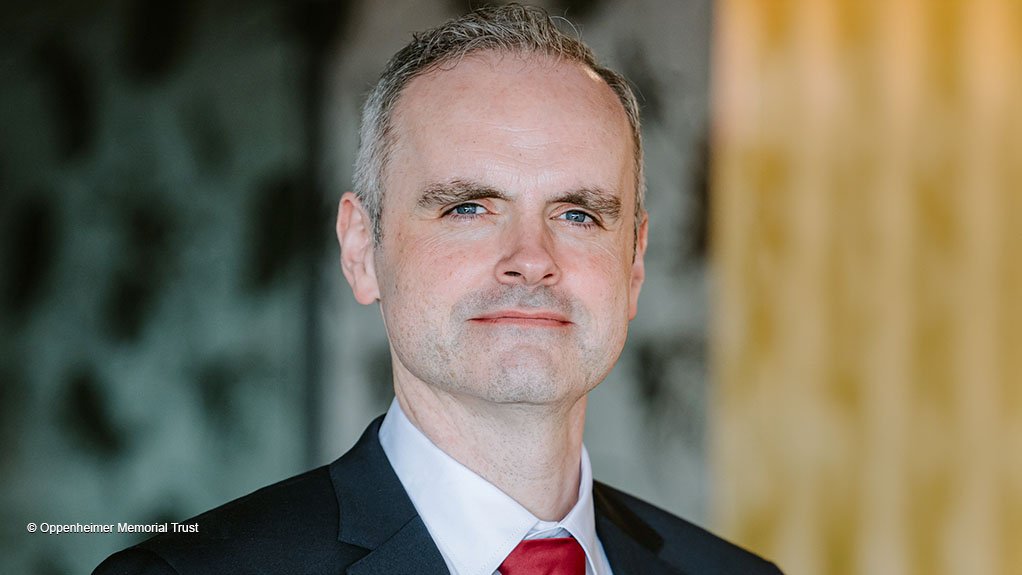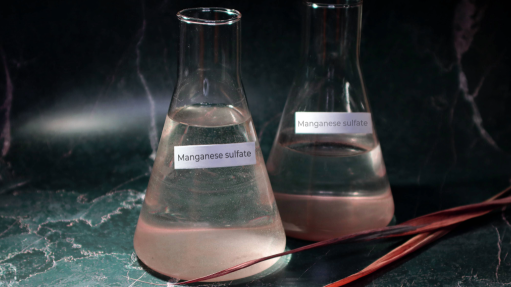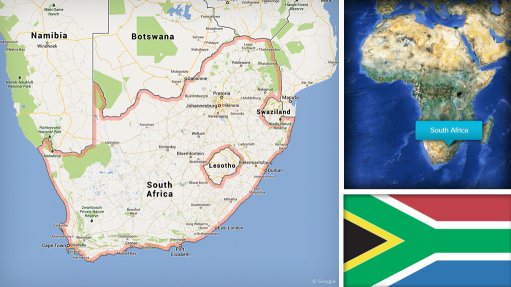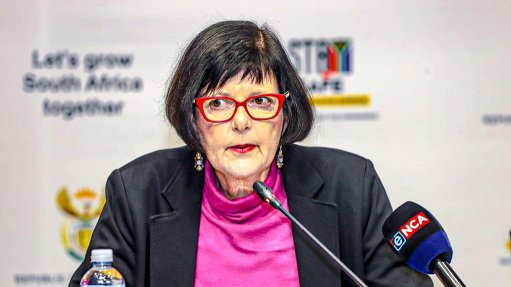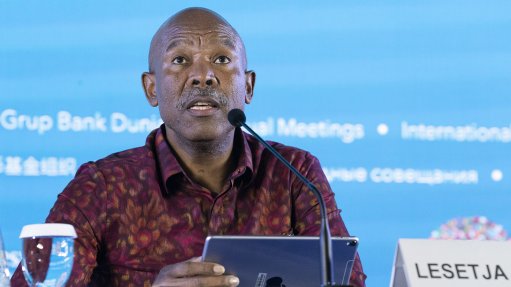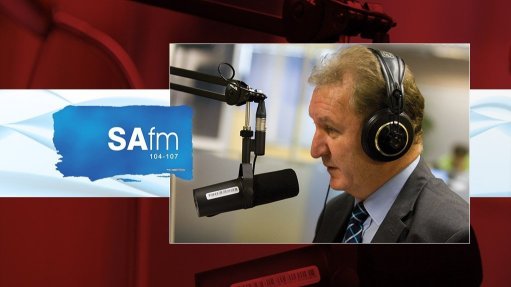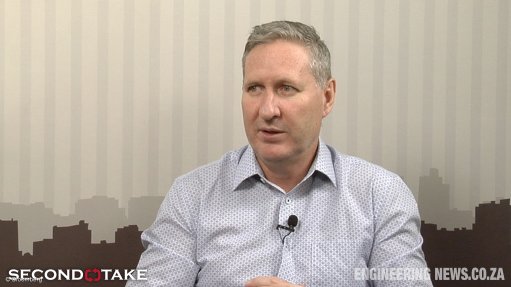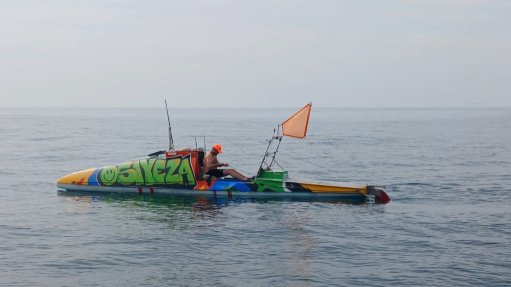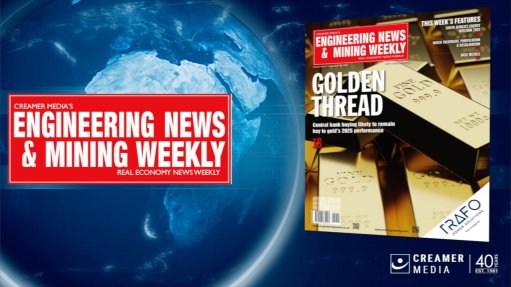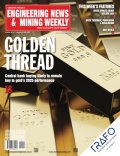New Oppenheimer research grant awarded to physicist, to develop medical technology
The Oppenheimer Memorial Trust has announced that the first winner of its New Frontiers Research Award is University of Cape Town (UCT) physicist, Dr James Keaveney. The trust created the award to help reinvigorate research excellence in South Africa (in 2021/22 the country spent only 0.62% of its GDP on research and development; in comparison, for example, in 2022 Türkiye spent 1.32%, Australia 1.66%, Portugal 1.7%, China 2.43%, Taiwan 3.96%, and South Korea 5.21%). The award has a value of R7.5-million, which will be disbursed over five years.
Keaveney is a particle physicist who has spent his career studying the fundamental particles and forces that make up all the matter in the universe. He has done so working with the European Organisation for Nuclear Research (better known as CERN) and its Large Hadron Collider, leading international research teams. While there he developed AI algorithms, and leading-edge detectors.
His objective is to use the award to fund research in South Africa, using technology developed for fundamental research in physics, to make positron emission tomography (PET) much cheaper and so much more available to lower-income patients here, and in other developing countries. Currently, there are only 21 PET scanners in South Africa, of which 62% are in the private healthcare system and PET scanning is available to only 18% of the country’s population.
“PET is the most sensitive medical imaging technique humanity has ever created,” highlighted Keaveney. “It’s essential for cancer diagnosis and the monitoring of cancer’s response to therapy. PET also has a crucial clinical role in tuberculosis (TB) diagnosis and treatment. TB is the leading cause of death in South Africa and the leading infectious killer of people worldwide after Covid-19.”
Using fundamental physics discoveries and technologies to advance medical technology is not new. Computerised axial tomography (CAT) scanning technology was jointly developed by South African Allan Cormack, a UCT particle physicist, and British engineer Godfrey Newbold Hounsfield; as a result, they were jointly awarded the 1979 Nobel Prize for Medicine. It was Cormack’s interest in pushing the limits of the X-ray technology he was using in his research that started the process that led to the CAT scan. (And X-rays themselves were a discovery of fundamental physics research.)
“I aim to take my experience and passion and follow Cormack’s example to make cutting-edge, life-saving and life-changing medical imaging cheaper, safer, more precise and available to all,” affirmed Keaveney. “The most important step in any major research project is assembly of the best possible team and establishment of the best possible local and international collaborations. I will embed my team within the [UCT] Department of Physics, which is exceptionally well resourced to host this programme. South Africa’s greatest natural resource is, of course, its young people. I have been consistently amazed by the intelligence, enthusiasm, and resilience of young physics and engineering students at UCT and across South Africa – there is nowhere else on Earth that I would rather be launching this research programme.”
The research programme will centre on the potential of quantum-dot nanocrystals to form the sensitive detectors that are the heart of PET scanners. Such quantum dots can be produced at scale quite easily, and so are cheap. Further, to increase PET precision and reduce its cost even more, the research will incorporate AI technology and processes. Keaveney’s research team will have a formal link with the African Institute for Mathematical Sciences (at Muizenberg in Cape Town), which recently launched an “AI for Science” Master’s degree programme.
“There is a new frontier of AI in which the actionable insights of an AI algorithm are instantly produced, called real-time inference,” he explained. “Real-time AI inference is a game-changer for PET imaging. Imagine a doctor performing a biopsy, guided by instant insights from an AI algorithm that analyses PET data in real time. This will make the procedure faster, more precise and safer for the patient.”
Comments
Press Office
Announcements
What's On
Subscribe to improve your user experience...
Option 1 (equivalent of R125 a month):
Receive a weekly copy of Creamer Media's Engineering News & Mining Weekly magazine
(print copy for those in South Africa and e-magazine for those outside of South Africa)
Receive daily email newsletters
Access to full search results
Access archive of magazine back copies
Access to Projects in Progress
Access to ONE Research Report of your choice in PDF format
Option 2 (equivalent of R375 a month):
All benefits from Option 1
PLUS
Access to Creamer Media's Research Channel Africa for ALL Research Reports, in PDF format, on various industrial and mining sectors
including Electricity; Water; Energy Transition; Hydrogen; Roads, Rail and Ports; Coal; Gold; Platinum; Battery Metals; etc.
Already a subscriber?
Forgotten your password?
Receive weekly copy of Creamer Media's Engineering News & Mining Weekly magazine (print copy for those in South Africa and e-magazine for those outside of South Africa)
➕
Recieve daily email newsletters
➕
Access to full search results
➕
Access archive of magazine back copies
➕
Access to Projects in Progress
➕
Access to ONE Research Report of your choice in PDF format
RESEARCH CHANNEL AFRICA
R4500 (equivalent of R375 a month)
SUBSCRIBEAll benefits from Option 1
➕
Access to Creamer Media's Research Channel Africa for ALL Research Reports on various industrial and mining sectors, in PDF format, including on:
Electricity
➕
Water
➕
Energy Transition
➕
Hydrogen
➕
Roads, Rail and Ports
➕
Coal
➕
Gold
➕
Platinum
➕
Battery Metals
➕
etc.
Receive all benefits from Option 1 or Option 2 delivered to numerous people at your company
➕
Multiple User names and Passwords for simultaneous log-ins
➕
Intranet integration access to all in your organisation



